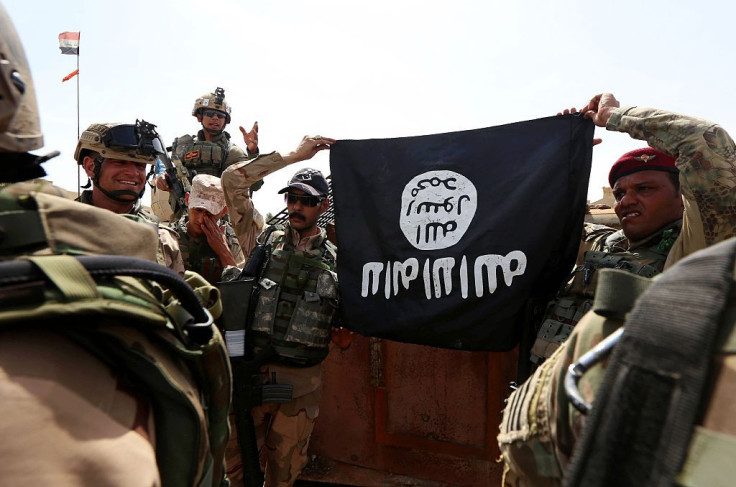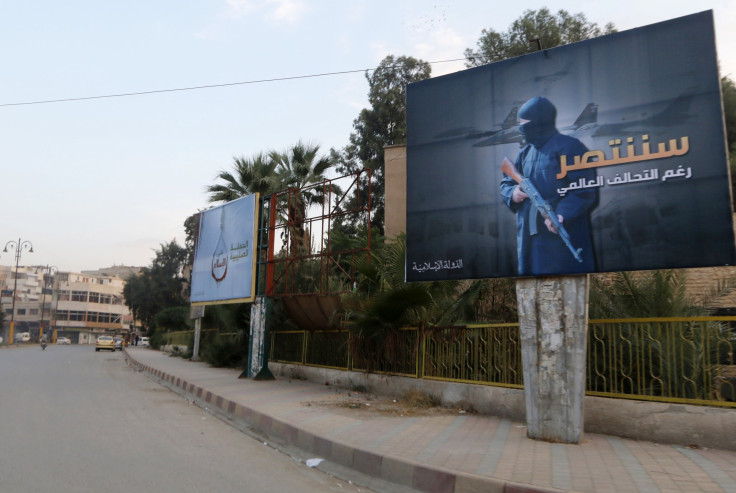War On ISIS: Islamic State Fighters Flee Iraq, March Toward Syria For Final Raqqa Battle

As the Iraqi Army and its allies beat back the Islamic State in Mosul, the group may be forced to rally in Raqqa, the capital and last major city of its self-proclaimed caliphate. Militants with the group also known as ISIS have started traveling to Syria from Iraq in recent weeks in a retreat that could further complicate the global war on ISIS, world leaders said this week.
The fight for Raqqa would be more complex than the one for Mosul. Although uncomfortable alliances may exist between the Sunni and Shiite forces marching toward the Iraqi city, Syria is the center of a careful geopolitical game between the U.S. and Russia and the Syrian government. Both sides have conducted airstrikes against the city in the past, but have never formally coordinated.
Most recently, the Syrian army has confronted ISIS in cities such as Palmyra and Deir al-Zour, but the Assad regime is reportedly concerned that an influx of ISIS fighters would threaten its recent military gains against the opposition and could invite unwanted foreign military intervention in Syria. The Syrian army, with Russian support, is currently fighting both rebels and ISIS in a civil war that has endured for more than five years.
Iraqi and Kurdish forces, supported by U.S. airstrikes and Shiite militias, are attempting to drive the militant group from Mosul, which fell to ISIS in 2014 and remains their last stronghold in Iraq. The effort could take months, but even if the city is successfully liberated, world leaders have warned that the militants will make a tactical withdrawal into their Syrian territory to regroup.
French Foreign Minister Jean-Marc Ayrault said Tuesday any retreat into Syria must be stopped, Reuters reported. He urged the U.S.-led coalition not to allow the Islamic State to “reconstitute itself or strengthen to create an even more dangerous hub” in Raqqa. Iraqi Prime Minister Haider al-Abadi, whose forces destroyed a convoy of 30 ISIS fighters and their families fleeing to Raqqa Tuesday, also said the U.S. must block ISIS attempts to flee into Syria.
"It is the responsibility of the coalition to cut the road to Syria for Daesh," Iraqi state television quoted Abadi as saying, using an Arabic acronym for ISIS.
Hundreds of ISIS fighters and their families have managed to flood Raqqa in recent days. The Syrian General Command of the Army and Armed Forces issued a statement Tuesday accusing the U.S.-led coalition of a "malicious scheme" to purposely drive ISIS militants into Syria. The Syrian army politically backs the Iraqi Army and Shiite militias in their efforts against ISIS, but does not support the Washington-led fight against the militants.

Hezbollah Secretary General Sayyed Hassan Nasrallah also accused the U.S. of a "deceptive plot" to allow ISIS into Syria in a speech last week. He called on Iraqi forces and Shiite militias to defeat ISIS militants before they could cross the border.
Fleeing ISIS members have come to Raqqa from the other end of ISIS’ territory, as well. In August, Turkey launched “Operation Euphrates Shield” with Syrian rebels in hopes of diminishing ISIS territory in northern Syria. Since then, Turkish-backed rebels have taken at least nine towns and villages, including Dabiq, which ISIS purports holds mythological status as the place where they will face the “Roman” armies at the end of the world.
Turkish President Recep Tayyib Erdogan told a group of academiciansTuesday that his country was willing to participate in a U.S.-led coalition to liberate Raqqa after Mosul was retaken.
© Copyright IBTimes 2024. All rights reserved.






















